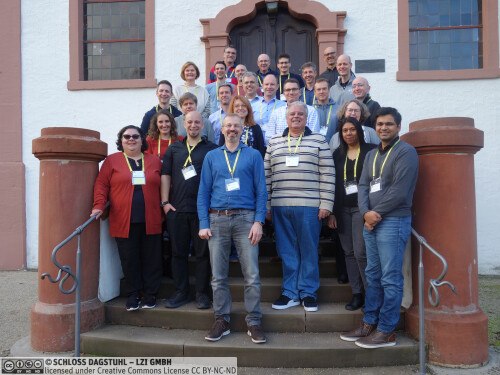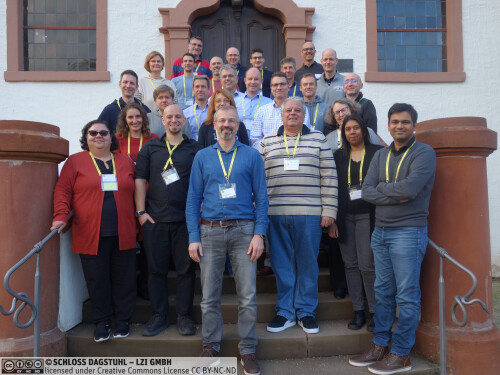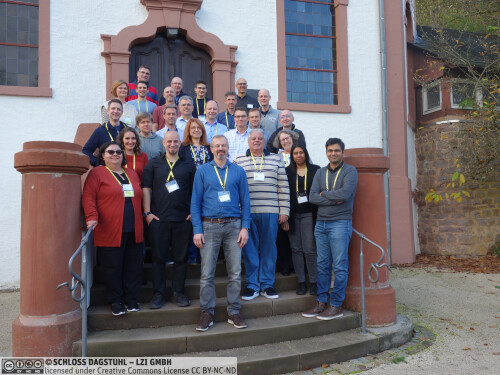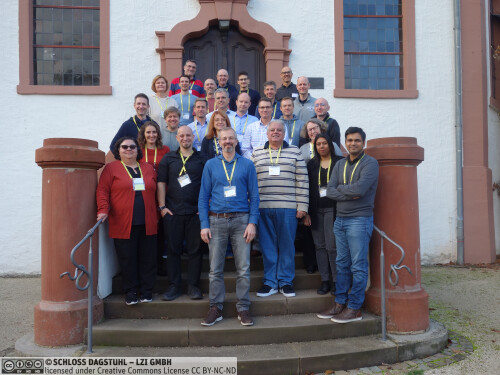Dagstuhl Perspectives Workshop 24452
Reframing Technical Debt
( Nov 03 – Nov 08, 2024 )
Permalink
Organizers
- Paris Avgeriou (University of Groningen, NL)
- Zadia Codabux (University of Saskatchewan - Saskatoon, CA)
- Heiko Koziolek (ABB - Mannheim, DE)
- Ipek Ozkaya (Carnegie Mellon University - Pittsburgh, US)
Contact
- Marsha Kleinbauer (for scientific matters)
- Christina Schwarz (for administrative matters)
Shared Documents
- Dagstuhl Materials Page (Use personal credentials as created in DOOR to log in)
Technical Debt is considered the "silent killer" of software projects. In a recent survey, software developers claimed that they spend 13.5 hours per week on Technical Debt, one-third of their working time. There is now widespread consensus in the industry that managing Technical Debt should be treated as a core software engineering practice. While the research community has already produced a substantial body of knowledge on Technical Debt, there are critical gaps in understanding Technical Debt for value-creation, integrating software architecture aspects, performing holistic data collection, managing socio-technical aspects, and designing robust tooling. This Dagstuhl Perspectives Workshop will bring together researchers and software practitioners to analyze these gaps to reframe the field of Technical Debt with concrete and actionable next steps, in the form of a manifesto. The manifesto will formulate 5-10 concise core principles to overcome current limitations in Technical Debt research and practice, and will further explain the benefits and consequences of these principles, as well as outline a roadmap with concrete milestones to be addressed by researchers, software practitioners, and tool vendors.
This Dagstuhl Perspectives Workshop aims to address the following key challenges and research questions:
- Technical Debt as value-creation: how can Technical Debt be positively taken in an informed and conscious manner to meet business goals, while still avoiding prohibitively high interest payments in the future?
- Elevating the role of architecture: beyond low-level code analysis, how can software architecture considerations be integrated into a Technical Debt management approach?
- Next-generation tooling: how can AI-based capabilities be utilized to overcome the limitations of today's software tools?
- New perspectives on data collection: beyond code analysis, how can other forms of data inform Technical Debt management?
- Socio-technical aspects: given that Technical Debt is often a matter of how individuals and teams operate, how can social aspects be integrated into Technical Debt management?
The workshop will include plenary sessions, break-out discussion groups, panels, and open spaces to aid the formulation of the core principles of the target manifesto. The manifesto will be drafted during the workshop and signed by the workshop participants. It is intended to embed the manifesto into a 10-page report that will be finalized after the workshop to provide more context, explanations, and expected implications. Upon finalization, the manifesto and report will be disseminated through social media and presentations at major software engineering conferences (e.g. ICSE, FSE, ICSA, ESEM). The manifesto will be sent to tool vendors and consulting companies for Technical Debt Management. We also aim to distribute the manifesto to funding agencies (to prioritize relevant research), industry leaders (to establish practices and frameworks on managing technical debt within their organizations), industry associations (to train professionals), and policymakers (to regulate how government projects handle economics related to technical debt).
 Paris Avgeriou, Zadia Codabux, Heiko Koziolek, and Ipek Ozkaya
Paris Avgeriou, Zadia Codabux, Heiko Koziolek, and Ipek Ozkaya
Please log in to DOOR to see more details.
- Apostolos Ampatzoglou (University of Macedonia - Thessaloniki, GR) [dblp]
- Paris Avgeriou (University of Groningen, NL) [dblp]
- Lodewijk Bergmans (Software Improvement Group - Amsterdam, NL)
- Markus Borg (CodeScene - Malmö, SE) [dblp]
- Alexandros Chatzigeorgiou (University of Macedonia - Thessaloniki, GR) [dblp]
- Marcus Ciolkowski (QAware - München, DE) [dblp]
- Zadia Codabux (University of Saskatchewan - Saskatoon, CA) [dblp]
- Stefano Dalla Palma (Adyen - Amsterdam, NL)
- Florian Deißenböck (CQSE - München, DE) [dblp]
- Philippe-Emmanuel Douziech (CAST - München, DE)
- Neil Ernst (University of Victoria, CA) [dblp]
- Daniel Feitosa (University of Groningen, NL) [dblp]
- Michael Felderer (DLR - Köln, DE) [dblp]
- Collin Green (Google - Mountain View, US) [dblp]
- Ciera Jaspan (Google - Mountain View, US) [dblp]
- Ron Koontz (The Boeing Company - Mesa, US) [dblp]
- Heiko Koziolek (ABB - Mannheim, DE) [dblp]
- Christof Momm (SAP - Dresden, DE)
- Brigid O'Hearn (Carnegie Mellon University - Arlington, US)
- Ipek Ozkaya (Carnegie Mellon University - Pittsburgh, US) [dblp]
- Klaus Schmid (Universität Hildesheim, DE) [dblp]
- Carolyn Seaman (University of Maryland - Baltimore County, US) [dblp]
- Tushar Sharma (Dalhousie University - Halifax, CA) [dblp]
- Guilherme Horta Travassos (UFRJ / COPPE - Rio de Janeiro, BR) [dblp]
- Roberto Verdecchia (University of Florence, IT) [dblp]
- Marion Wiese (Universität Hamburg, DE) [dblp]
Related Seminars
- Dagstuhl Seminar 16162: Managing Technical Debt in Software Engineering (2016-04-17 - 2016-04-22) (Details)
Classification
- Software Engineering
Keywords
- Technical debt
- Software maintenance and evolution
- Software architecture
- Software economics
- Software Quality





 Creative Commons BY 4.0
Creative Commons BY 4.0
